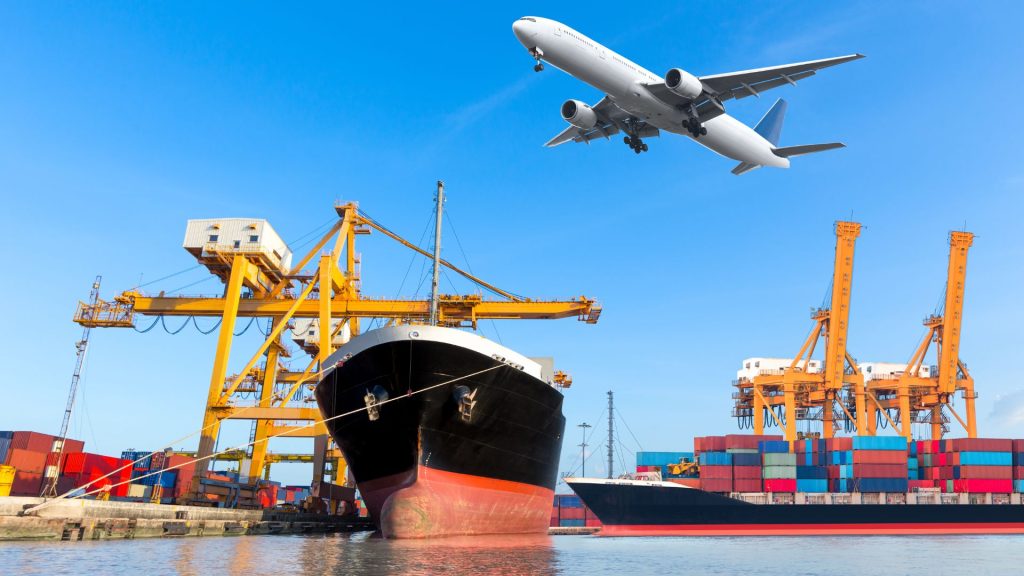U.S. CONTAINER IMPORTS MIRROR PRE-PANDEMIC LEVELS
U.S. container imports climbed more than 5% last month, in-line with more typical peak shipping season levels before the pandemic’s impact on trade, according to the latest global shipping report Despite the volume increase, port transit times in the U.S. remained close to their lowest levels since Descartes began tracking them two years ago.U.S. container import volumes in July 2023 increased by 5.1% compared to the previous month, reaching almost 2.2 million TEUs. However, this figure was 13.6% lower than one year ago in July 2022. Nevertheless, import volumes last month were almost identical to those of July 2019, with a difference of just 0.5%.“The increase in July U.S. import container volume is consistent with the peak season patterns we would see pre-pandemic “Despite the increase in import container volume to almost 2.2 million TEUs, port transit times remained close to last month’s low levels which is good news for importers.”

PORT HOUSTON CELEBRATES WHARF 6 PROJECT COMPLETION
Port Houston has celebrated the completion of its Wharf 6 upgrades, part of its Bayport Container Terminal expansion project. A ribbon-cutting ceremony held last Friday was attended by U.S. Transportation Secretary Pete Buttigieg and Maritime Administrator Admiral Ann Philips, among other federal, state, and local officials.This new wharf will enable the Port to keep up with the new growth and demand and help reduce supply chain congestion by providing additional capacity to berth another vessel around the clock.” The Wharf 6 project involves the construction of a new 1,000-foot-long wharf with three new new-Panamax container cranes capable of handling the largest ships that can fit through the Panama Canal. The new wharf is scheduled to be fully operational in October.
Western Canadian cargo flow returning to normal following labor agreement
The Western Canadian ports of Vancouver and Prince Rupert are clearing out container backlogs that accumulated during the two weeks of on-again, off-again dockworker strikes last month as rail and trucking operations in the region begin to return to normal. “Steady progress continues to be made since July 13, when ship, rail and trucking operations resumed. After rejecting two previous agreements negotiated by the International Longshore and Warehouse Union (ILWU) Canada and British Columbia Maritime Employers (BCMEA), union membership voted on Aug. 4 to accept the third agreement.
ZIM BETS ON SPOT RATES IN CHALLENGING TRANS-PACIFIC MARKET
A calculated decision by Zim Integrated Shipping Services this year to increase its exposure to the trans-Pacific spot market was not enough to stave off another quarterly loss, but it leaves the carrier well-positioned to take advantage of the recent rise in rate levels.Zim’s spot-to-contract ratio has been 50:50 over the past two years, but the Israel-based carrier this year increased the share of volume moving on the spot market in this contract season to 70%.

REVAMPED SOUTHEAST CHASSIS POOL TO CHARGE ‘PENALTY FEE’ TO UNREGISTERED USERS The administrator of a new chassis pool covering the ports of Jacksonville, Savannah and Wilmington, NC, plans to charge a hefty penalty to trucking companies that use equipment without registering for the pool. Drayage operators were required to register for previous iterations of the South Atlantic Chassis Pool (SACP), but invoices were not issued by Consolidated Chassis Management (CCM), which will administer and oversee the SACP 3.0. Registration details include the company name, US Department of Transportation number, Uniform Intermodal Interchange Agreement (UIIA) status, contact information for the billable party and an estimate of the number of chassis used annually.




